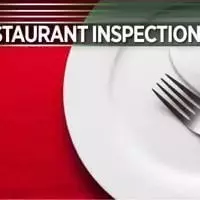Lifestyle

Uncovering the Secrets of Pennsylvania's Food Safety Inspections: A Comprehensive Guide
The Pennsylvania Department of Agriculture plays a vital role in ensuring the safety and quality of the state's food establishments, employing a risk-based inspection reporting process to monitor restaurants and other food handlers. This comprehensive article delves into the inspection process, shedding light on the key elements that inspectors evaluate and the potential consequences for non-compliance.Elevating Food Safety Standards: Insights from Pennsylvania's Inspection Regime
Rigorous Inspections: Safeguarding the Dining Experience
The Pennsylvania Department of Agriculture's inspection process is designed to thoroughly evaluate the safety and cleanliness of restaurants and other food establishments. Inspectors closely examine various aspects of the facility, including food storage, preparation, and handling practices, as well as the overall sanitation and hygiene of the premises. By maintaining a keen eye for potential hazards, these professionals work tirelessly to uphold the highest standards of food safety, ensuring that diners can enjoy their meals with confidence.Uncovering Violations: Addressing Concerns and Ensuring Compliance
During the inspection process, inspectors are trained to identify a range of potential violations, from improper food handling and storage to the presence of unsanitary conditions. When such issues are discovered, the inspectors work closely with the establishment's management to address the concerns and ensure that corrective actions are taken. This collaborative approach aims to not only identify problems but also empower food handlers to rectify any shortcomings, ultimately strengthening the overall safety of the food service industry.The Closure Conundrum: Balancing Safety and Disruption
In extreme cases, where the identified violations pose a significant threat to public health, inspectors may exercise their authority to temporarily close a restaurant or food establishment. This drastic measure is not taken lightly, as it can have far-reaching consequences for the business, its employees, and the local community. Inspectors carefully weigh the severity of the violations against the potential impact of a closure, always striving to find the delicate balance between safeguarding public wellbeing and minimizing unnecessary disruption.Transparency and Accountability: Empowering Consumers and Fostering Trust
The Pennsylvania Department of Agriculture's inspection reporting process is designed to promote transparency and accountability within the food service industry. By publicly sharing the results of these inspections, the department empowers consumers to make informed decisions about where they choose to dine. This open approach not only holds food establishments accountable for their practices but also encourages a culture of continuous improvement, as businesses strive to maintain the highest standards to retain the confidence of their patrons.Navigating the Complexities: Insights from Experienced Inspectors
The role of a food safety inspector is multifaceted, requiring a deep understanding of food handling regulations, strong problem-solving skills, and the ability to navigate complex situations with tact and professionalism. Through their years of experience, these inspectors have developed a nuanced approach to their work, balancing the need for strict adherence to safety protocols with a compassionate recognition of the unique challenges faced by food service operators.Fostering Collaboration: Building Bridges Between Inspectors and Businesses
The Pennsylvania Department of Agriculture recognizes the importance of fostering a collaborative relationship between inspectors and food service establishments. By adopting a consultative approach, inspectors work closely with business owners and managers, providing guidance and support to help them address any identified issues. This open dialogue not only strengthens compliance but also cultivates a shared understanding of the mutual goal of ensuring the safety and quality of the state's food supply.

